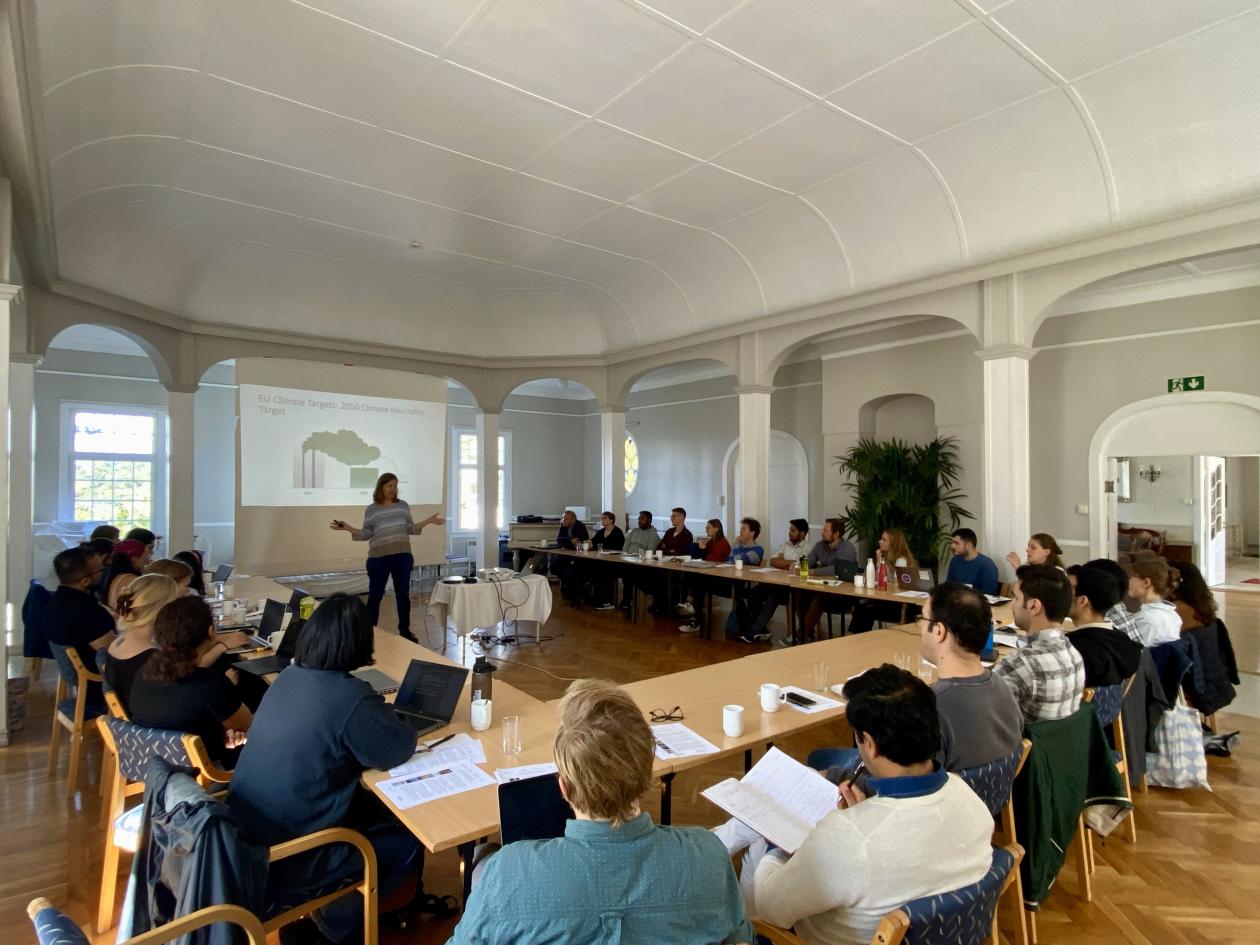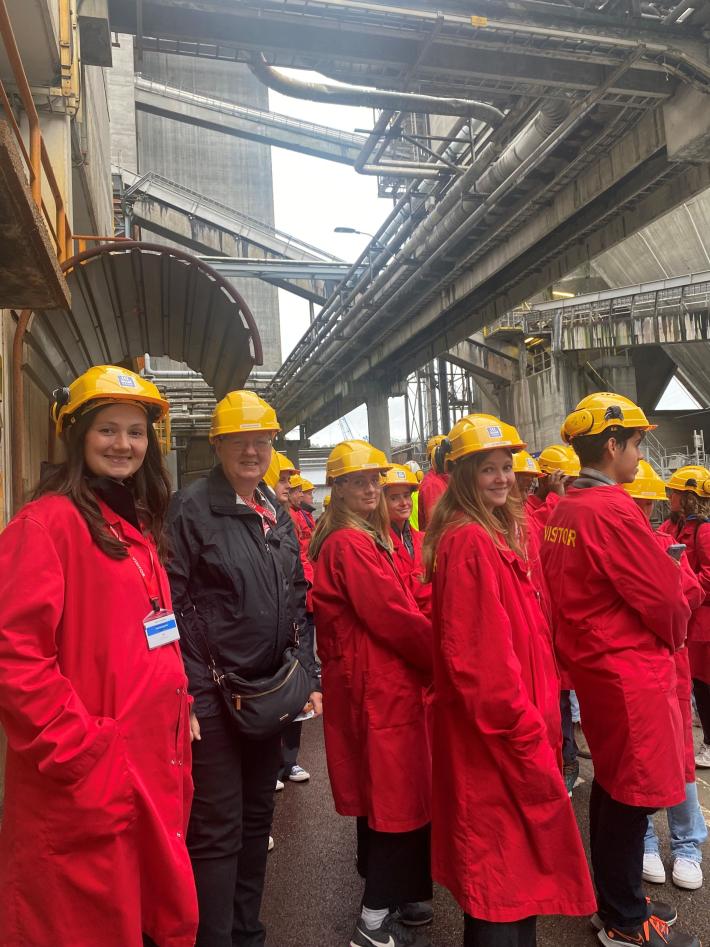Take home messages from summer school
PhD-candidates Marte Samuelsen Skogen and Julià Tudó Cisquella from Department of Comparative Politics about this year's NorRen summer school.

Hovedinnhold
Marte Samuelsen Skogen
Attending the NorRen Summer School has been an invaluable experience, providing me with a much-needed trans-disciplinary perspective on renewable energy and industry decarbonization. We received a broad overview of different pathways and challenges related to making a clean energy transition. What stood out to me was the diversity of perspectives among the PhD candidates. I really enjoyed engaging with people who are tackling similar issues from different angles. Another highlight was that we got to visit (what is to be) the world's first CO₂-capture facility in the cement industry, Brevik CCS and Heidelberg Materials.
After this week, I feel more confident in my ability to critically analyze the politics surrounding renewable energy. The insights I gained from the summer school have equipped me with a stronger foundation to approach my research with a more nuanced perspective.
Julià Tudó Cisquella
It has been a really enriching experience attending the Norwegian Research School in Renewable Energy (NorRen) 2024. Through an intensive (and intense) 5-day course, we received lectures on the main challenges and opportunities that the energy transition presents. While the courses were mainly technical, discussing the role of hydrogen, Carbon Capture and Storage, and similar topics, the socio-political dimension was also addressed. This course has provided me with more tools to analyse the technical and political implications of the green transition, which will help me in developing my PhD thesis focused on party positions on climate change. I highly recommend attending this summer school to all PhD candidates working on related topics, both in social and technical sciences. If I have to highlight one key takeaway from this experience, it is that social sciences are crucial for understanding the social and political resistances to the energy transition, which often pose significant challenges to technical progress.

